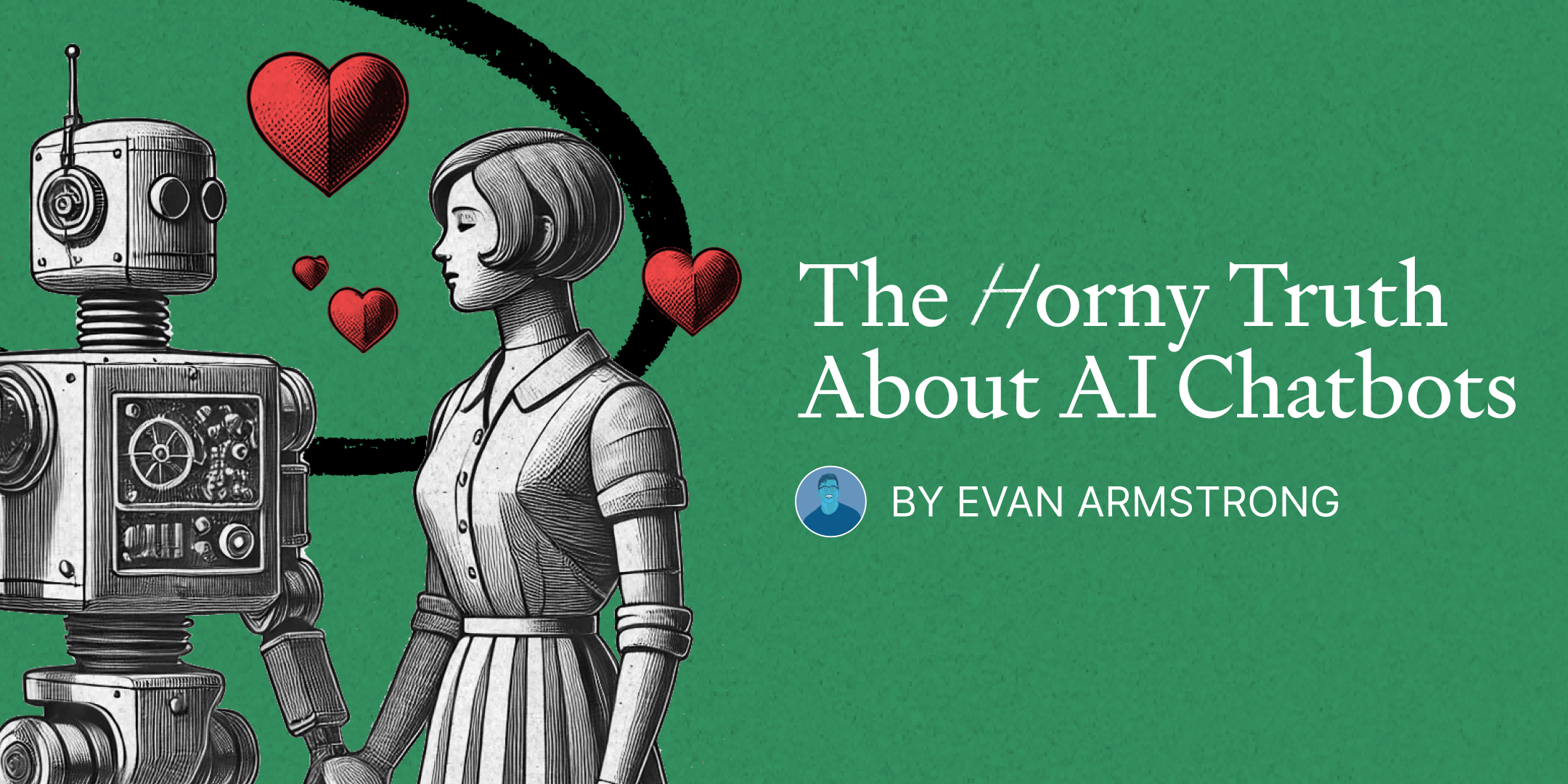The Horny Truth About AI Chatbots

🌈 Abstract
The article discusses the growing popularity of AI chatbots, particularly those used for emotional and sexual companionship, and the implications of this trend. It explores the connection between loneliness, sexlessness, and the rise of these AI services, as well as the potential benefits and concerns surrounding their use.
🙋 Q&A
[01] The Internet and Horniness
1. What is the author's main point about the connection between the internet and horniness?
- The author suggests that if you want to understand which technologies will be successful in the future, you should look at the adult entertainment industry, as it is often an early adopter of new technologies.
2. What example does the author provide to illustrate this point?
- The author cites a quote from an AI founder, Avi Schiffmann, who acknowledges that some people will use his company's Bluetooth-connected pendant device for sexual purposes, despite it not being specifically designed for that.
[02] The Rise of Pornographic Chatbots
1. What is the author's observation about the popularity of pornographic chatbots?
- The author notes that pornographic chatbots are some of the most popular and profitable AI applications in use today, with a cottage industry of services like Janitor AI, Muah.AI, and others attracting millions of users and significant revenue.
2. What data does the author provide to support this observation?
- The author estimates that there are around 5-10 million monthly active users of these pornographic chatbot services.
- The author also cites the example of Character.AI, which has 3.5 million daily active users who spend an average of 2 hours per day chatting with the platform's chatbots.
[03] The Loneliness Epidemic and Chatbots
1. What is the author's perspective on the relationship between loneliness and the rise of chatbots?
- The author acknowledges that while loneliness and sexlessness existed before the advent of chatbots, these services may be exacerbating the problem. However, the author also notes that chatbots may provide a temporary salve for loneliness, despite concerns about user addiction and preference for chatbots over human interaction.
2. What research does the author cite to support the potential benefits of chatbots for loneliness?
- The author cites a Harvard Business School working paper that found chatbots to be effective at resolving feelings of loneliness, and notes that the most expensive of these services are relatively affordable compared to traditional social activities.
[04] Concerns and Considerations
1. What are the author's main concerns about the use of chatbots for emotional and sexual companionship?
- The author expresses concern about the depth of attachment and addiction some users develop towards their AI companions, as well as the potential for these services to be used to engage in inappropriate or illegal activities, such as roleplaying with "under-18" characters.
2. What is the author's overall perspective on the net impact of these chatbot services?
- The author states that it is still too early to say whether these chatbot services are ultimately good or bad, and that they may have both positive and negative implications. The author is unwilling to cast wholesale judgment on the category, but acknowledges the concerning signs of user addiction and preference for chatbots over human interaction.